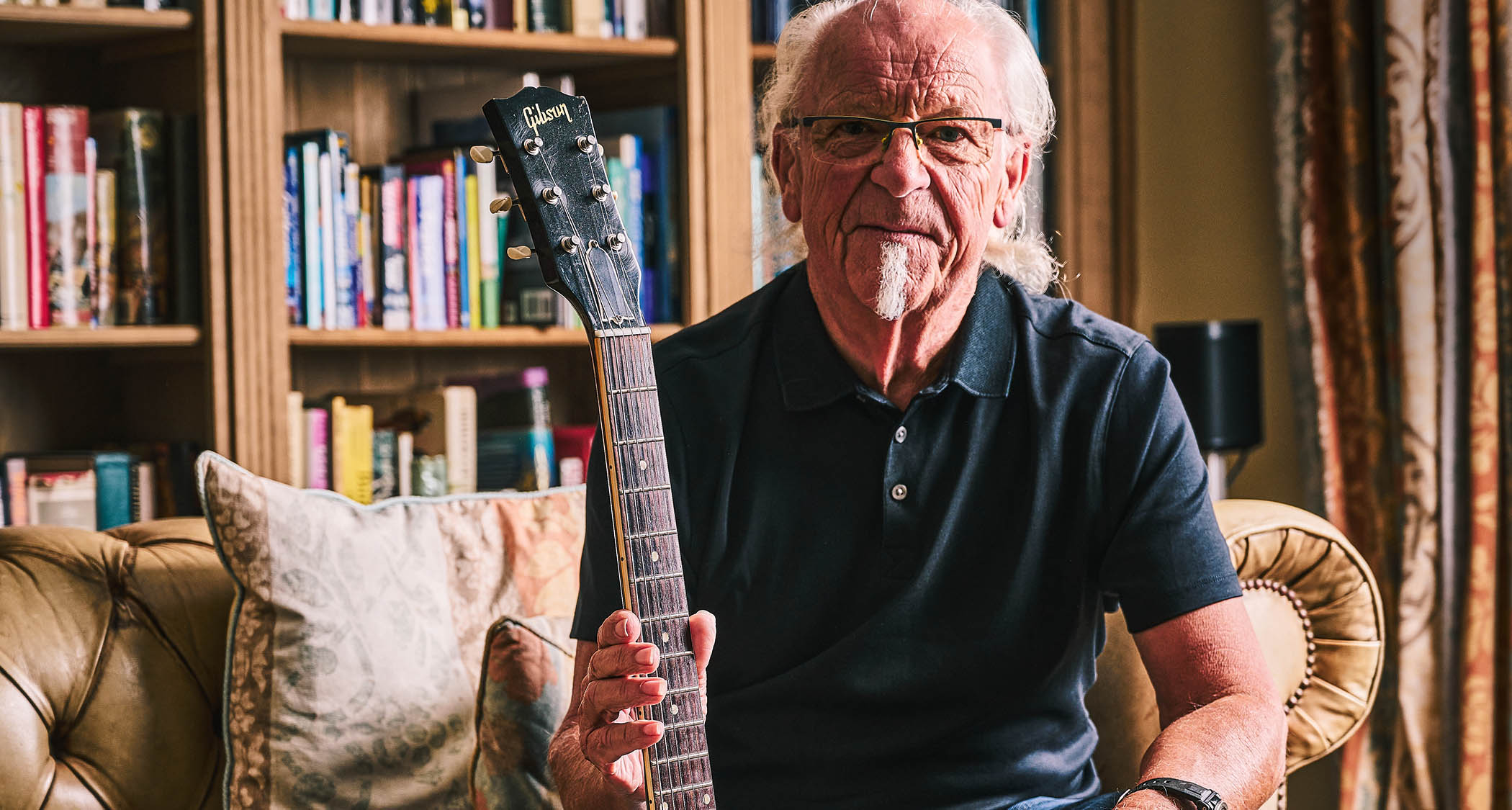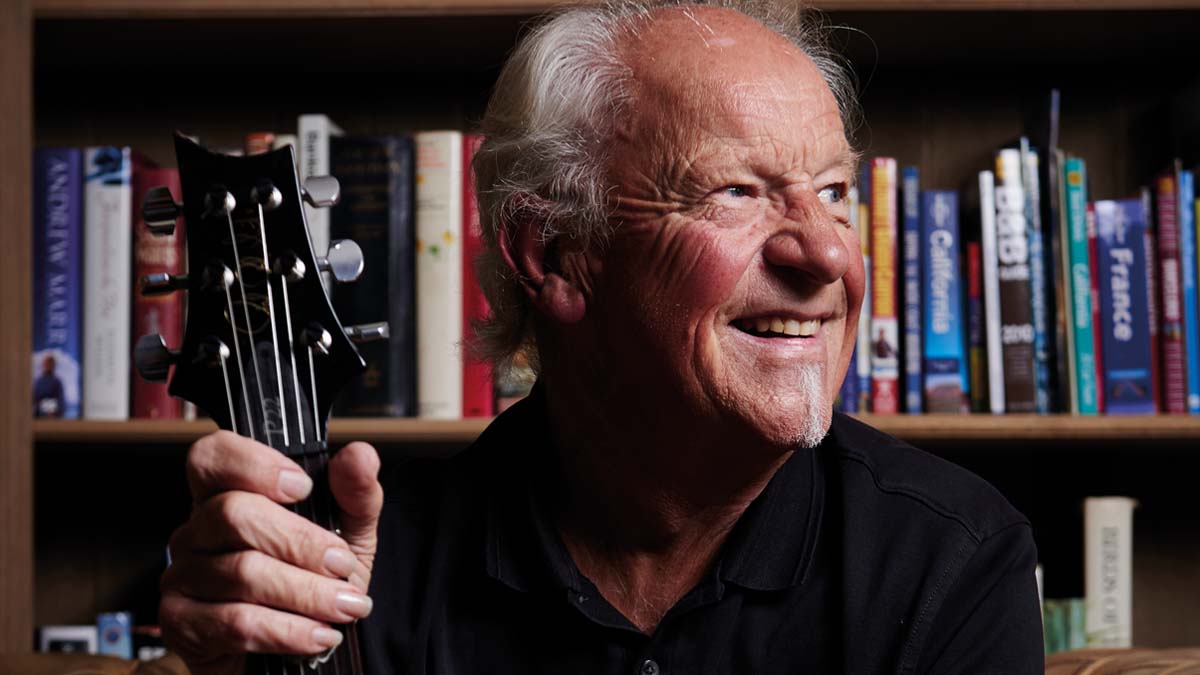“In the beginning, I was a terrible rhythm player. I avoided it like the plague”: Martin Barre once distanced himself from rhythm playing – but some Steve Lukather wisdom changed his mind
The former Jethro Tull lead guitarist reassessed his playing priorities after hearing some wise words from the Toto legend

Former Jethro Tull lead guitarist Martin Barre has reflected on his relationship with the art of rhythm guitar, saying he avoided it like the “plague” until some sage wisdom he heard from Steve Lukather made him rethink his stance.
“In the beginning, I was a terrible rhythm player,” he tells Guitar World. “I sort of avoided it like the plague. But Steve Lukather famously has said that most of his sessions were playing rhythm guitar, and that made me sit up and take notice.”
Most memorably, Lukather played on Michael Jackson’s Beat It – which featured a legendary solo from Eddie Van Halen – but his session credits stretch far and wide. From Michael Bolton and George Benson to Cher, Alice Cooper, and Elton John, Lukather is a legend of the session circuit, and he's previously remarked how rhythm playing was at the heart of most of his sessions.
“I’ve been paid to play rhythm guitar 90% of the time,” he told Rick Beato in 2023. “Kids can learn every lick in the world from the Internet now, but a lot of them have no groove, because they haven’t learned how to play rhythm guitar – like that’s not important!”
Barre, then, was taking notes. Asked what he did to improve that side of his playing, he explains: “I examine every aspect of what I do. It could be my left-handed technique, using my little finger, more bending notes with it, scales, modes, or listening to and trying to play classical.
“There’s always some aspect that will grab me, and right now, it’s my right-handed technique,” he expands. “I knew that I needed to up my rhythm game. Even in playing solos, the rhythm of what you’re playing is vital for the feel. You can’t not be a good rhythm player. You have to understand it and feel it; otherwise, you’re not a complete player.”
After over 40 years in Tull – during which he helped turn a fledging group into prog rock icons and, unbelievably, beat Metallica to a Best Hard Rock/Metal Performance Vocal or Instrumental Grammy – Martin Barre left in 2011.
Get The Pick Newsletter
All the latest guitar news, interviews, lessons, reviews, deals and more, direct to your inbox!
Discussing his departure from Tull, he gave a rather sharp response: “Essentially, Ian talked and I listened. You can draw your own conclusions.” But though he may now be a bandleader in his own right, Barre still believes: “I am Jethro Tull's guitar player. I was, I am now, and I always will be.”

Jethro Tull released Curious Ruminant, their latest album in the post-Barre era, earlier this year. Naturally, a certain portion of their fanbase will always clamor for Barre's return, but Anderson has been quick to quash such talk.
“Martin is doing his own stuff,” he recently told Classic Rock. “He should be having a whale of a time, instead of being embittered about Jethro Tull.”
A freelance writer with a penchant for music that gets weird, Phil is a regular contributor to Prog, Guitar World, and Total Guitar magazines and is especially keen on shining a light on unknown artists. Outside of the journalism realm, you can find him writing angular riffs in progressive metal band, Prognosis, in which he slings an 8-string Strandberg Boden Original, churning that low string through a variety of tunings. He's also a published author and is currently penning his debut novel which chucks fantasy, mythology and humanity into a great big melting pot.
You must confirm your public display name before commenting
Please logout and then login again, you will then be prompted to enter your display name.
“I said, ‘Mike, I don’t know how to tell you this, but that’s a note-for-note guitar solo from...” Mike McCready stole his Alive solo from Kiss – but Ace Frehley had already stolen it from another legendary classic rock band
“You run scales so when inspiration and instinct kicks in you're able to keep up with it”: Larkin Poe's Rebecca Lovell explains her “hunt and peck” approach to guitar solos – and how scales can make all the difference











